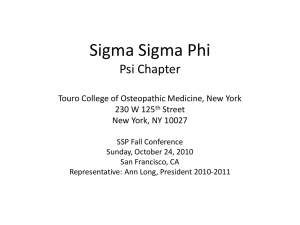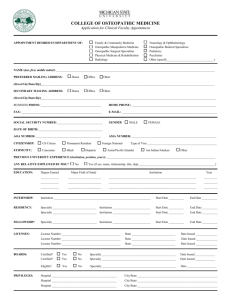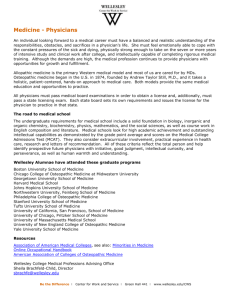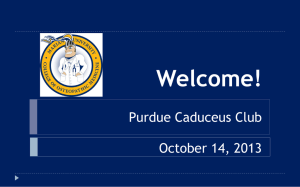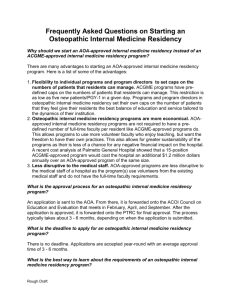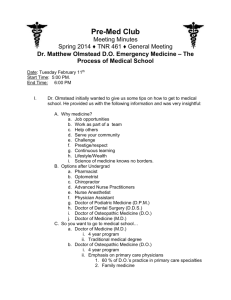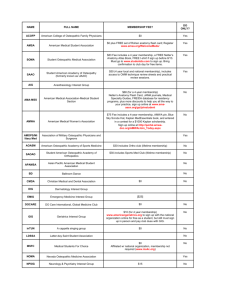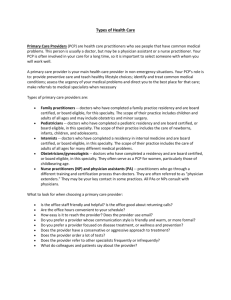By Harris H.B. No. 585 A BILL TO BE ENTITLED AN ACT relating to
advertisement
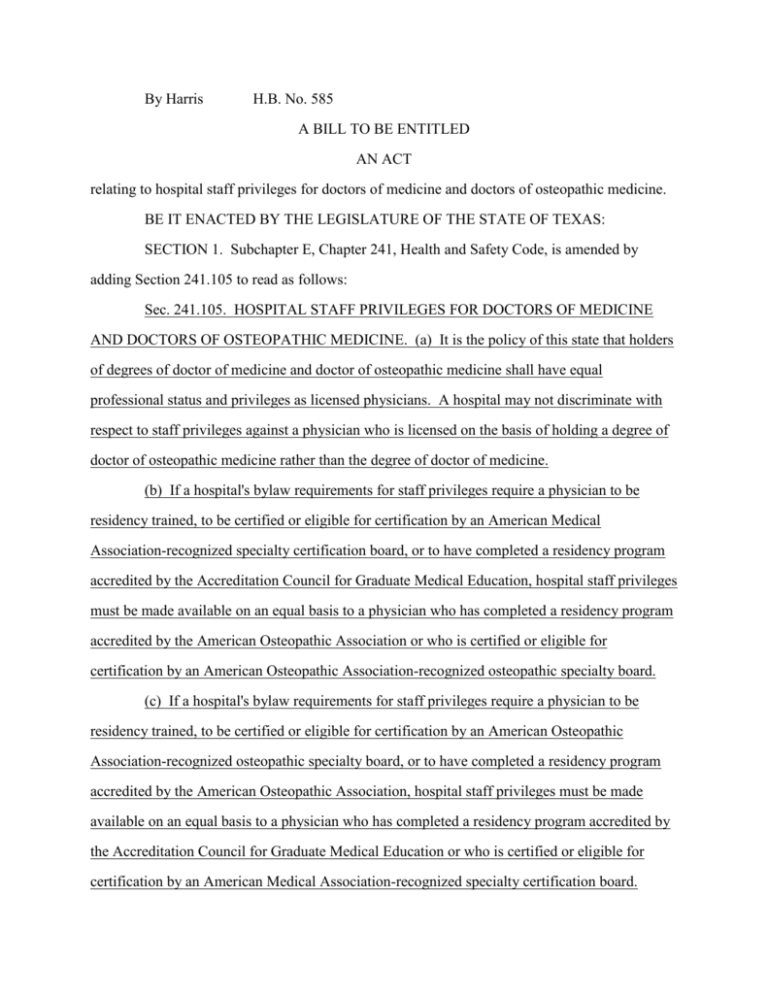
By Harris H.B. No. 585 A BILL TO BE ENTITLED AN ACT relating to hospital staff privileges for doctors of medicine and doctors of osteopathic medicine. BE IT ENACTED BY THE LEGISLATURE OF THE STATE OF TEXAS: SECTION 1. Subchapter E, Chapter 241, Health and Safety Code, is amended by adding Section 241.105 to read as follows: Sec. 241.105. HOSPITAL STAFF PRIVILEGES FOR DOCTORS OF MEDICINE AND DOCTORS OF OSTEOPATHIC MEDICINE. (a) It is the policy of this state that holders of degrees of doctor of medicine and doctor of osteopathic medicine shall have equal professional status and privileges as licensed physicians. A hospital may not discriminate with respect to staff privileges against a physician who is licensed on the basis of holding a degree of doctor of osteopathic medicine rather than the degree of doctor of medicine. (b) If a hospital's bylaw requirements for staff privileges require a physician to be residency trained, to be certified or eligible for certification by an American Medical Association-recognized specialty certification board, or to have completed a residency program accredited by the Accreditation Council for Graduate Medical Education, hospital staff privileges must be made available on an equal basis to a physician who has completed a residency program accredited by the American Osteopathic Association or who is certified or eligible for certification by an American Osteopathic Association-recognized osteopathic specialty board. (c) If a hospital's bylaw requirements for staff privileges require a physician to be residency trained, to be certified or eligible for certification by an American Osteopathic Association-recognized osteopathic specialty board, or to have completed a residency program accredited by the American Osteopathic Association, hospital staff privileges must be made available on an equal basis to a physician who has completed a residency program accredited by the Accreditation Council for Graduate Medical Education or who is certified or eligible for certification by an American Medical Association-recognized specialty certification board. (d) A hospital may not use a preapplication form to discriminate against a physician with respect to an academic medical degree, residency training, or certification. (e) A hospital may not adopt written bylaws that circumvent the legislative intent to give equal professional status and privileges to doctors of medicine and doctors of osteopathic medicine or to circumvent any other nondiscriminatory provisions in the Medical Practice Act (Article 4495b, Vernon's Texas Civil Statutes) or any other law applicable to osteopathic physicians. (f) A hospital's credentials committee shall act expeditiously and without unnecessary delay when a licensed doctor of medicine or doctor of osteopathic medicine submits a completed application for permission to treat patients in the hospital. The hospital's credentials committee shall take final action on the completed application not later than the 90th day after the date the application is received. The hospital must notify the applicant in writing of the hospital's final action, including a reason for denial of or restriction on the completed application, not later than the 20th day after the date of the final action. (g) On receipt of a complaint of discrimination by an aggrieved physician with respect to an academic medical degree, residency training, or certification, the district attorney of the county in which a violation under this section occurs or the district attorney of Travis County may bring an action to enjoin the violation. SECTION 2. The importance of this legislation and the crowded condition of the calendars in both houses create an emergency and an imperative public necessity that the constitutional rule requiring bills to be read on three several days in each house be suspended, and this rule is hereby suspended, and that this Act take effect and be in force from and after its passage, and it is so enacted.
